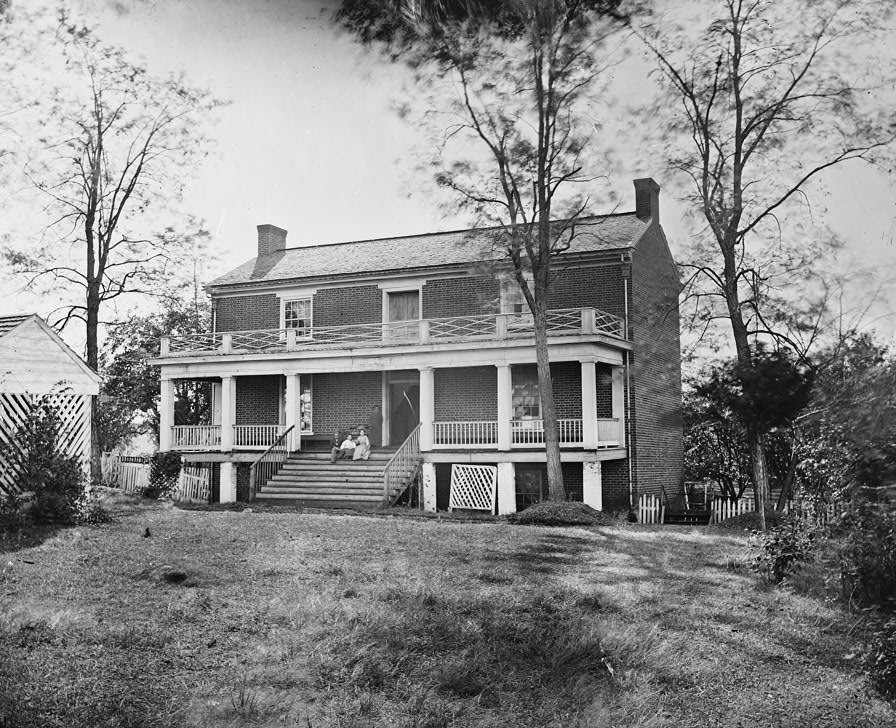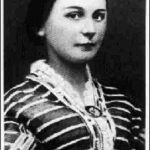Author, Poet and Confederate Heroine
 Mary Ann Harris Gay was born March 1829 in Jones County, Georgia. Her father was William Gay and her mother was the former Mary Stevens. William Gay descended from Virginians who migrated through the Carolinas to Georgia. He died within a year or so after his daughter’s birth.
Mary Ann Harris Gay was born March 1829 in Jones County, Georgia. Her father was William Gay and her mother was the former Mary Stevens. William Gay descended from Virginians who migrated through the Carolinas to Georgia. He died within a year or so after his daughter’s birth.
In 1833, Mary’s mother married Decatur lawyer Joseph Stokes, and the family moved to Cassville on the northwestern frontier of Georgia. Her mother gave birth to two more children, and was widowed again.
In April 1840, Mary’s grandfather Thomas Stevens died, leaving part of his estate to Mary Gay’s mother, with the stipulation that money be held in trust from the sale of certain Twiggs County land for the education of his grandchild Mary Gay. The family moved to Marietta in 1845, and Mary’s first poem, My Valley Home, was published there anonymously the next year.
Following the death of her stepfather, Mary and her family moved to Decatur in 1851. That move was probably determined by her deceased grandfather’s family and his connections there. It is not known whether the property to which Mary and her family moved was property purchased by her grandfather, because the early maps of the city have been destroyed. Also unknown is whether Mary Gay was ever formally educated in accordance with the terms of her grandfather’s will.
We do know that she continued to publish poetry, and that her first book was published anonymously under the title Prose and Poetry in 1858. The second edition appeared the following year, in which Mary was identified as the author. Several of her early poems were republished in this first book.
Mary and her mother were living at Decatur, a town near Atlanta, in a quaint old home when the Civil War broke out. Mary was an ardent Southern sympathizer who would have preferred going into battle to the homefront hardships she described in her book, Life in Dixie During the War. “If I could have, I would have joined the army and fought. But I did all that I could.” And she did plenty.
One day, Mary’s mother told her about a young mother named Maggie with three little children, who had nothing to eat. Mary cooked a pot of mush and baked hoe-cakes of corn bread, and went in search of the mother and children.
Learning that Maggie’s husband was away fighting the war, Mary managed to secure a homemade wagon from an old slave in the village named Uncle Mack, and she got an old horse from the cane brake – a dense thicket – where worn-out horses of the Federal soldiers had been turned loose. She found Maggie and her children at the home of Doctor Holmes.
Gathering the reins in her hands, Mary led the old horse on their way, with the mother and children nestled away in the wagon. On the third day they reached the depot at Social Circle – a point on the Georgia Railroad beyond the reach of raiders’ destruction. Here the mother and children took the train for Madison to stay with relatives.
On her return to Decatur, Mary encountered a group of women and children, with tin cans they had picked up from Federal camps, begging Miss Mary for something to eat. Mary had purchased a few supplies in Social Circle for her own family, but she gave them enough to keep them from starving. Not one was turned away.
This was not the only trip she made to get provisions for the destitute people of Decatur. On one return trip, Miss Mary and her old horse, Johnny Reb, came very near being captured by Yankees. She was halted by a party of Federal soldiers; Mary waved her bonnet as a flag of truce. The Federals asked her where she got the horse branded ‘U.S.’ on each side of his hindquarters. She told the soldiers how she got Johnny Reb, and they let her pass.
Mary outsmarted the Yankee general whose troops camped on her lawn during the Union siege of Atlanta – July through September, 1864 – so she could smuggle goods and information to Confederate forces. She walked miles to exchange the lead gathered from battlefields for food with which to feed the women and children left without provisions by Sherman’s evacuation. She hid winter clothing in her dining room ceiling and later smuggled it to Confederate soldiers.
Mary’s brother died in battle, and her mother succumbed soon thereafter. Miss Mary, as she had come to be known, carried on. With her brothers’ widow, his son, and half-sister to support, Mary decided to republish her 1858 book, Prose and Poetry by a Southern Lady, selling it door to door to earn their living. That book went through eleven editions, and (due at least in part to her perseverance and tenacity in marketing it), financially provided for her small family during the difficult years of Reconstruction.
Although Mary’s family was fairly well off before the Civil War, as enthusiastic supporters of the Southern cause they had invested all their cash in Confederate bonds, which left them in dire circumstances after the war. But her efforts did not cease. She secured funds for several major projects. A devout Baptist, Miss Gay raised the money to build a postwar building for the Baptist congregation of Decatur.
That success led to her being hired as a fundraising agent by the Baptist church; as such she traveled the South for thirty years. On one trip she was appalled to see cows trampling unmarked graves on the field where her brother and others had died in service to the Confederacy, and immediately set about raising the money to mark the graves and fence the field. She also raised funds for numerous Confederate memorials and helped to organize a local chapter of the United Daughters of the Confederacy.
 Image: Mary Ann Harris Gay House
Image: Mary Ann Harris Gay House
Mary lived in this house from 1850 to 1914. From this house, Mary and her family witnessed the skirmishing in Decatur on July 22, 1864. It is now on the National Register of Historic Sites.
But it was the book she wrote for her nephew – so he might appreciate the father he never knew – that brought her the most success. One of only a few such histories penned by a woman, Life in Dixie During the War tells about her refusal to leave her home when Union cavalry set up camp outside for three months and commandeered her parlor for Union headquarters. One of the federal officers declared, “I glory in your spunk and am proud of you as my countrywoman.”
Life in Dixie During the War is a personal narrative of life in Georgia during the Civil War. First published in 1892, it was hailed for being a brilliant account of the experiences of a Southern woman as she struggled through the devastating hardships brought by the conflict. There are many good stories in the book, and Margaret Mitchell drew upon some of them when she wrote Gone With the Wind forty years later.
Growing bent, old and crippled, Miss Mary survived well into another century. On November 6, 1918, shortly before her ninetieth birthday, Mary Ann Harris Gay died, and was laid to rest in the old section of the Decatur Cemetery next to her mother and her sister.
For her faith, courage, energy, and accomplishments, Mary Ann Harris Gay was named a Georgia Woman of Achievement.
SOURCES
The Mary Gay House
Mary Ann Harris Gay
Rootsweb: The Gay Family Archives






The first edition of Prose and Poetry was published in 1851.